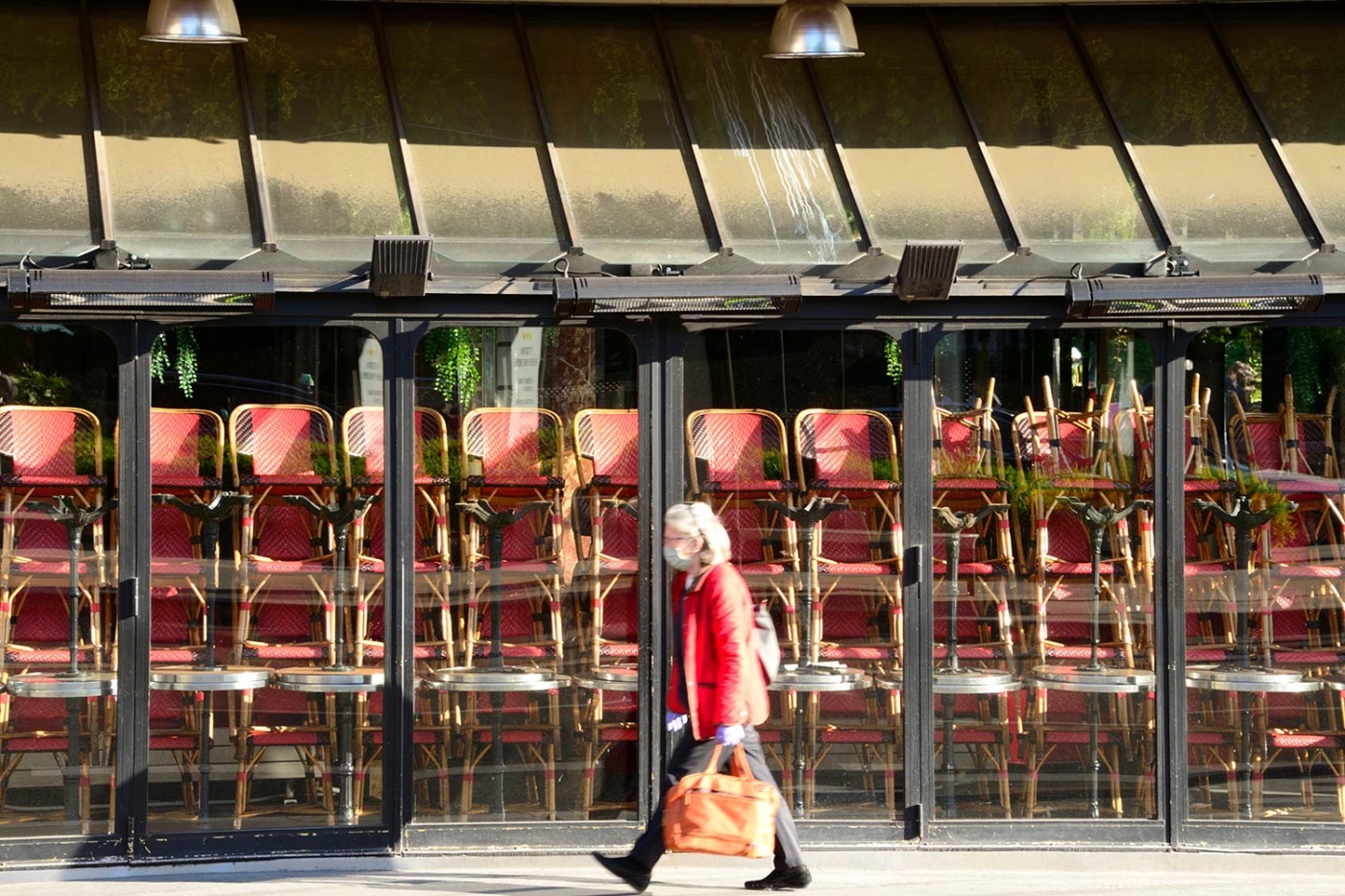The Future of the Restaurant Industry Is as Bland as Oatmeal
First things first, apologies to those who put oatmeal on a pedestal. Honestly, minus the blueberries, raisins and a sliced up banana, it is rather bland and boring. Similarly, as lockdown restrictions are easing across the world and restaurants in hibernation roll up their shutters in anticipation of the new normal, you will have to settle for “oatmeal” in these Covid-19 times. Want to add more brown sugar? There is a swathe of takeout options now. Or drizzle honey? Get used to casual and more simplified offerings.
With many longing to dine in restaurants again, eager to make reservations at their favourite hangouts, now might be the best time to manage expectations. Everything has changed.
If you managed to score a reservation at your beloved Mexican Taqueria, (which by now is hanging by a thread from the non-stop blows) do not expect the same convivial experience. You’ll be met with full-body sanitiser stations and dividers even before the quesadilla hits the table. That means no more coveting thy neighbour’s dishes. Harbouring thoughts of visiting your reliable izakaya? And exchanging jokes with the bartender? Don’t expect a visible smile behind the mask. That’s half of the entertainment being stripped away.
With social distancing measures put in place, most venues will be forced to cap their occupancy at 50 per cent. It’s not rocket science—with the pandemic triggering a global debt crisis, most businesses are forced to relook at their food and overhead costs. Some of the best in the scene have all hands on deck to overhaul the business: Alinea now does curbside beef wellington, Finnish chef Sasu Laukkonen is pounding sushi in his restaurant Ora, and Noma has replaced their degustation menu with natural wines and veggie burgers, which is a major departure from high-end dining. It’s a dystopian future and unlike Netflix’s Bandersnatch, where there are various branching narratives, unfortunately, we can’t rewrite the ultimate fate. It is a little depressing to think that your favourite haunt might not survive the ordeal, but they can’t all co-exist. Especially not under these circumstances.
One thing’s for sure, the future of dining lies in the hands of technology. From contactless delivery to digital display advertising, many restaurants are reinventing and innovating rapidly to ensure their survival. Even in the foreseeable years ahead, these landmark changes are here to stay. Furthermore, with the dread of an impending deep recession, you won’t be seeing restaurants touting a newly varnished cheese trolley or a fresh coat of paint after reopening.
One good to come out of this crisis right now is the greater appreciation for those who work in F&B. While we’re seeing a surge of hungry diners tackle challenging recipes at home, baking bread and banding together to form collectives, every failed attempt, every burnt pan scrubbed, every dish washed serves as a reminder of the true value of the hospitality industry. Consumer sentiment and value perception have definitely increased, but the economy is not ready to make amendments just yet.
Restaurants have always occupied a starring role in important occasions: birthdays, anniversaries, business dealings, first dates, as places for people to connect socially. But with the pandemic forcing people to shelter at home, dining out is poised to lose its unshakeable foothold as the de facto norm for gatherings. Now people are going to have to find new avenues to corral and restaurants will have to fight very hard to bring these diners back. To make matters worse, reports show that consumers are tightening their wallets, in light of the economic downturn.
I don’t think it’s far-fetched to say that the most exciting and creative era of eating and dining out is dead and gone. Will food influencers rise up from the ashes to advocate restaurant dining opportunities, even when there are no lucrative benefits? Will ardent gourmands still travel to the furthest corners of the world for Michelin bragging rights? Will award ceremonies bounce back to its debaucherous and red carpet ways? Who knows?
I can hear Frank Sinatra croon, “I’ve lived a life that’s full. I’ve travelled each and every highway. And more, much more than this, I did it my way.”
The restaurant industry will never be the same again. But just as the passing of the roaring twenties, the exodus of the glitz and glamour was just part of the broken road leading up to our current predicament. At the end of the day, there is still hope for the survivors. For now, I’m turning my efforts to foster the farm-to-table concept, as promoted by chef Dan Barber; reserving a plot of land on my potential B&B grounds for digging and planting purposes. If this coronavirus outbreak hasn’t proved to be a real wet blanket already, at least it has served as an inflection point for us to be more responsible towards our environmental health.


